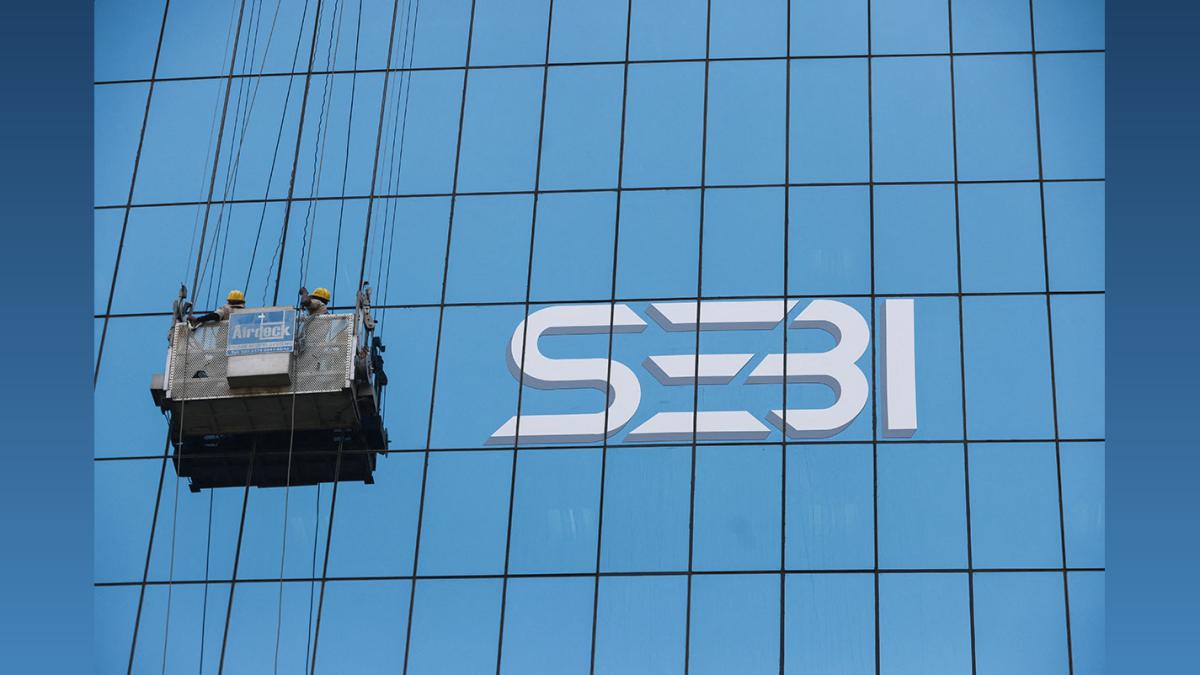Sebi Proposes Rs 1 Cr Minimum Investment for Securitized Debt
Sebi proposes a minimum investment of Rs 1 crore for securitized debt instruments, along with other regulatory changes, including demat form requirement and risk management measures.

Photograph: Francis Mascarenhas/Reuters
New Delhi, Nov 3 (PTI) Markets regulator Sebi has proposed a minimum ticket size or investment threshold of Rs 1 crore for the RBI-regulated originators and unregulated entities engaged in securitisation activities.
The proposal also introduced limitations on the number of investors in private placements, allowing securitized debt instruments (SDIs) issued privately to be offered to a maximum of 200 investors. If this limit is exceeded, the issuance must be classified as a public issue.
Public offers should remain open for a minimum of three days and a maximum of 10 days, with advertisement requirements aligned with Sebi's regulations for non-convertible securities.
Additionally, the regulator has suggested that all securitized debt instruments should be issued and transferred exclusively in demat form.
SDIs are financial products created by pooling together various types of debt -- such as loans, mortgages, or receivables -- and then selling them as securities to investors. This process, known as securitisation, allows the originator (such as a bank) to convert illiquid assets into liquid ones, providing an alternative source of funding.
Investors in these instruments receive returns based on the performance of the underlying debt pool, and the risk is spread across multiple assets, offering potentially attractive returns.
The current framework is based on Sebi's 2008 regulations, with updates from the Reserve Bank of India's (RBI) 2021 directions on securitising standard assets.
The Securities and Exchange Board of India (Sebi) is now considering updates to the regulatory framework for securitized debt instruments and sought public comments till November 16 on the proposals.
Regarding risk management, Sebi has proposed that originators retain a minimum risk retention of 10 per cent of the securitised pool or 5 per cent for receivables with a maturity of up to 24 months.
A minimum holding period requirement will also be specified by Sebi for underlying receivables to ensure that originators maintain an interest in the underlying assets, the regulator said in a consultation paper.
The regulator further suggested including an optional clean-up call for originators, allowing them to repurchase up to 10 per cent of the original value of the assets. This call is optional and intended to help manage the pool's longevity without mandating additional commitments from the originator.
Liquidity facilities, essential to handle timing mismatches in cash flows, should either be provided directly by the originator or through an appointed third party.
The updated definition of "debt/receivables" limits permissible underlying assets to listed debt securities, accepted trade receivables, rental incomes, and equipment leases while disallowing single-asset securitisation.
The proposal establishes minimum track record requirements for both originators and obligors. Originators should have a minimum of three years of operating experience, while trade receivables specifically require at least two cycles of successful, default-free payments.
The proposal also introduced limitations on the number of investors in private placements, allowing securitized debt instruments (SDIs) issued privately to be offered to a maximum of 200 investors. If this limit is exceeded, the issuance must be classified as a public issue.
Public offers should remain open for a minimum of three days and a maximum of 10 days, with advertisement requirements aligned with Sebi's regulations for non-convertible securities.
Additionally, the regulator has suggested that all securitized debt instruments should be issued and transferred exclusively in demat form.
SDIs are financial products created by pooling together various types of debt -- such as loans, mortgages, or receivables -- and then selling them as securities to investors. This process, known as securitisation, allows the originator (such as a bank) to convert illiquid assets into liquid ones, providing an alternative source of funding.
Investors in these instruments receive returns based on the performance of the underlying debt pool, and the risk is spread across multiple assets, offering potentially attractive returns.
The current framework is based on Sebi's 2008 regulations, with updates from the Reserve Bank of India's (RBI) 2021 directions on securitising standard assets.
The Securities and Exchange Board of India (Sebi) is now considering updates to the regulatory framework for securitized debt instruments and sought public comments till November 16 on the proposals.
Regarding risk management, Sebi has proposed that originators retain a minimum risk retention of 10 per cent of the securitised pool or 5 per cent for receivables with a maturity of up to 24 months.
A minimum holding period requirement will also be specified by Sebi for underlying receivables to ensure that originators maintain an interest in the underlying assets, the regulator said in a consultation paper.
The regulator further suggested including an optional clean-up call for originators, allowing them to repurchase up to 10 per cent of the original value of the assets. This call is optional and intended to help manage the pool's longevity without mandating additional commitments from the originator.
Liquidity facilities, essential to handle timing mismatches in cash flows, should either be provided directly by the originator or through an appointed third party.
The updated definition of "debt/receivables" limits permissible underlying assets to listed debt securities, accepted trade receivables, rental incomes, and equipment leases while disallowing single-asset securitisation.
The proposal establishes minimum track record requirements for both originators and obligors. Originators should have a minimum of three years of operating experience, while trade receivables specifically require at least two cycles of successful, default-free payments.
You May Like To Read
TODAY'S MOST TRADED COMPANIES
- Company Name
- Price
- Volume
- Vodafone-Idea
- 11.86 ( -0.84)
- 71085314
- Mangalam-Industrial
- 0.93 (+ 3.33)
- 56454360
- Murae-Organisor
- 0.27 (+ 8.00)
- 39165930
- Filatex-Fashions
- 0.38 ( 0.00)
- 29971474
- Welspun-Specialty
- 38.34 ( -5.47)
- 29026380




